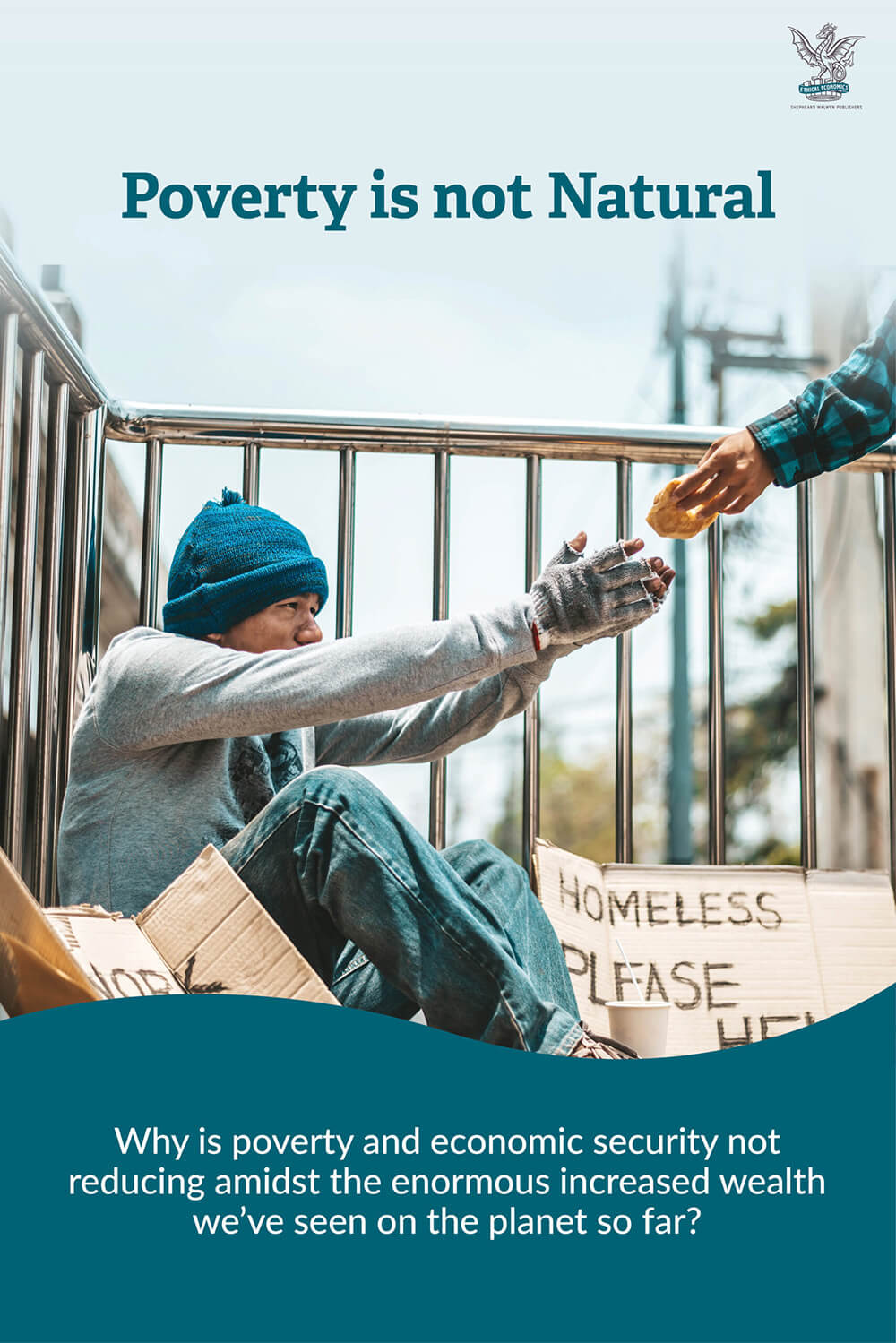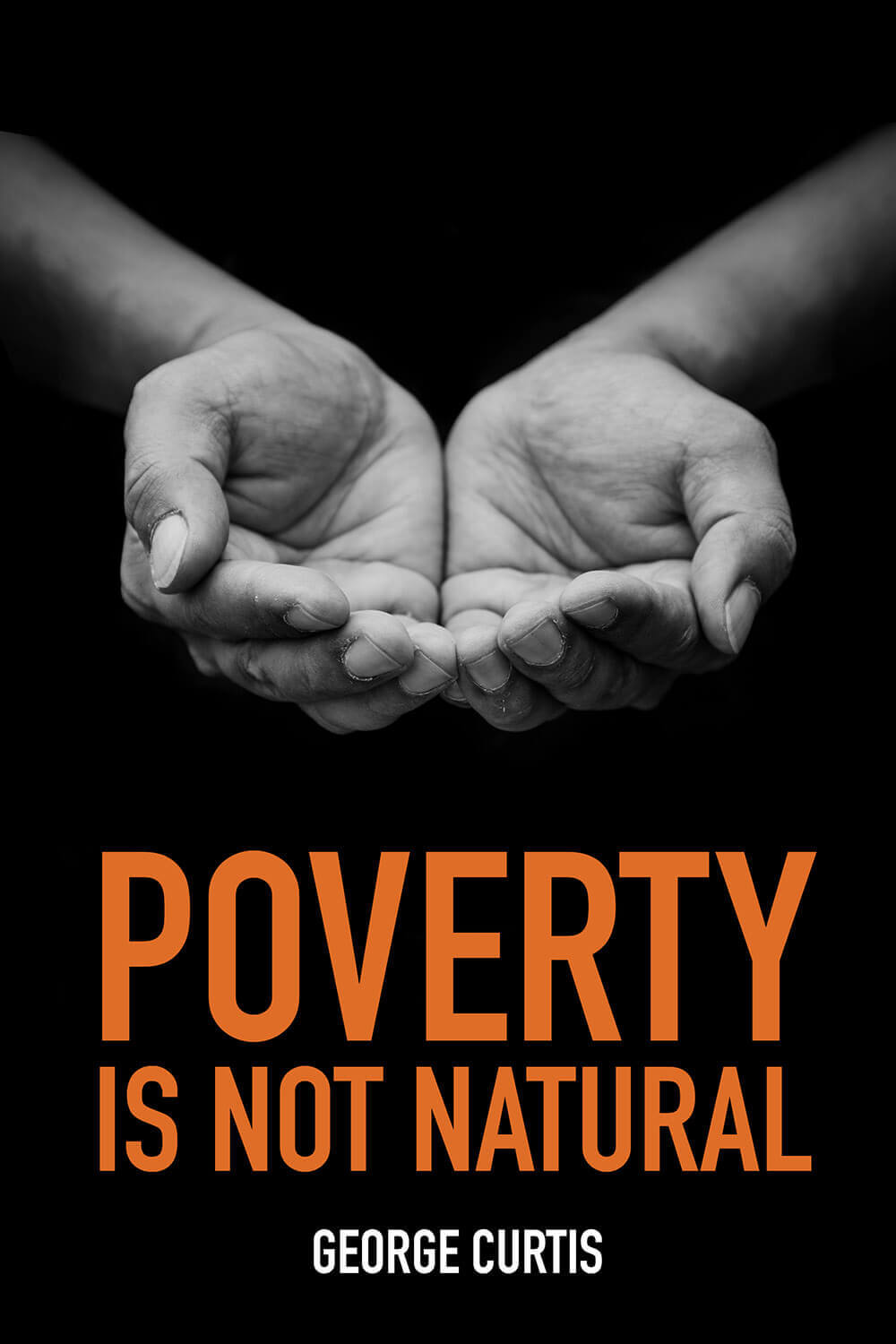Why is poverty and economic security not reducing amidst the enormous increased wealth we’ve seen on the planet so far?
In Poverty is not Natural, the author George Curtis draws upon the work of
19th-century American economist, Henry George. It was George who looked into the cause of wealth disparity during the Industrial Revolution.
George is known for his 1879 classic book, Progress and Poverty. This is the book that even outsold the bible at its time of publication – and for a decade after.
The book begins by quoting Nelson Mandela’s speech in Trafalgar Square in 2005:
“Overcoming poverty is not a task of charity, it is an act of justice. Like slavery and apartheid, poverty is not natural. It is man-made and can be overcome by the actions of human beings.”
As we flip through the pages, the book shows Curtis’s commitment to justice.
It’s sad but true. Such unequal wealth distribution has since created poverty right up until today. By the same token, the book acknowledges that the cause of poverty is entrenched across the world in a widely accepted institution, just like slavery or apartheid.
This ‘institution’ is well described by Curtis: the unequal rights to land. Or perhaps better put, the enclosure of the commons.
The book elaborates on the economic arrangements that have created a system that benefits only the rich. With this man-made system, landowners can take a giant share of the wealth and leave little to anyone else.
In addition to Henry George, the book also mentions a few other historic figures, like Winston Churchill who expressed his concern that such rising inequality could lead to harsh injustices and perhaps even eventual overthrow of the system.
A fairer system is, therefore, necessary to narrow the economic disparity.
Recalling Mandela’s speech, the last chapter takes the reader to unveil the actions that can reduce poverty, such as replacing the complicated tax system with the collection of economic rent.
It’s the collection of the Rent that has such dramatic ability to alter the distribution of what society produces in a more ‘just’ fashion.
Poverty is not Natural is the book Financial Times (FT) columnist Martin Wolf picked as one of his best essential reads for 2020. (FT, 17 June 2020.)







